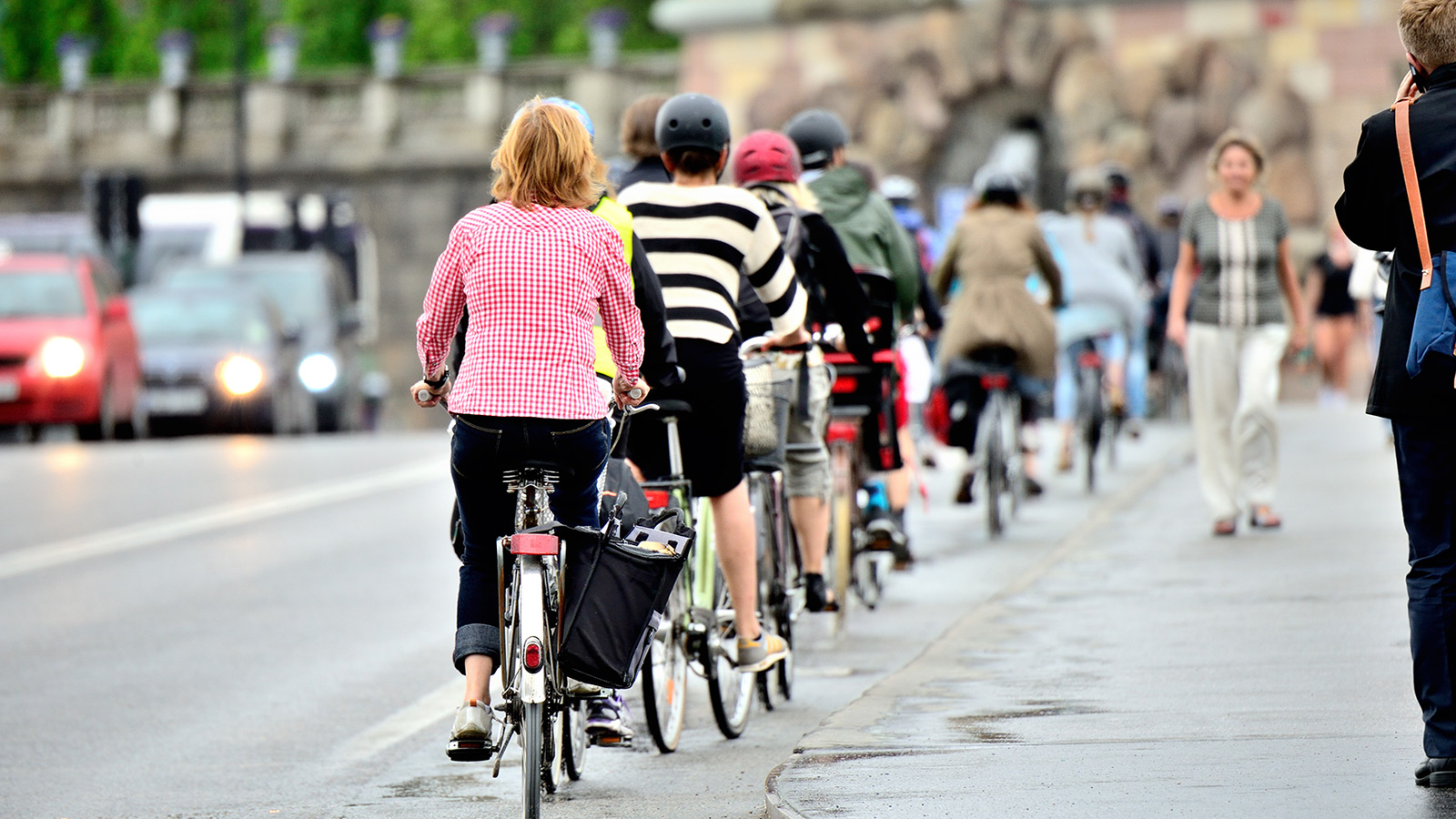It must be nice to be Dutch: While the rest of us are dealing with ensuring reasonable access to reproductive healthcare and violent seasonal pumpkin festivals, in the Netherlands, people are taking to the streets to protest poor bike traffic planning.
While we’ve fretted about the possibility that there are TOO MANY bikers in the Low Country before, the truth is more complicated than that.
Citylab’s Sarah Goodyear points out that despite our utopian mental images of happy Dutchmen gleefully coasting along their superior bike infrastructure, even the most advanced of biking societies still have logistical speed bumps to work out when it comes to bike traffic. Case in point: In Utrecht, where an estimated third of trips are taken on two wheels, certain intersections have cyclists waiting so long for a green that some of them have just started running the light. And then the police started doing what they do best: writing tickets. The resulting backup last week was more than 100 bikers deep and rattled the city to its polite and measured core.
So last week, volunteers from the local chapter of Cyclists’ Union broke out the radical tools of social change — sweet rolls and pamphlets — to soothe their impatient compatriots and gently called attention to another of the poorly designed intersections last week. And it’s working! A day after the first incident, city planners conceded that the traffic signal’s timing was off, and readjusted it to cycle more cyclists through faster.
In the U.S., where cars vs. bikes sometimes feels like a physical battle of wheels more than a civil battle of wills, it’s nice to see what can happen when a large number of people ask nicely for a thing that will make their lives better. I don’t mean to go all Kumbaya on you here … so I’ll let Goodyear do it for me:
As the number of people riding bicycles on the streets and roads of the United States and other countries continues to rise, the need to create better infrastructure only becomes more apparent. That includes better bike-specific signal timing and bike-specific regulations such as the Idaho stop (which allows bikes to treat stop signs as yield signs).
Change is possible, even though it may take time. Someday, more places will be lucky enough to have Utrecht’s problems — and, one would hope, also its willingness to find solutions.



